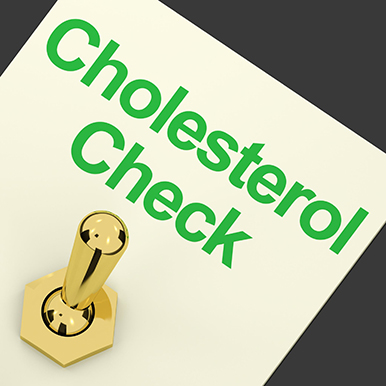
1. Alirocumab Reduces Risk of Cardiovascular Disease |

![]()
A subgroup of diabetes patients continue to have abnormal lipid levels despite the use of existing agents. Proprotein convertase subtilisin/kexin type 9 (PCSK9) is a key protein in upregulating the low-density lipoprotein receptors on the liver. Currently, there are two PCSK9 Inhibitors; alirocumab (a fully human monoclonal antibody) and evolocumab approved by FDA for use in mixed dyslipidemia.
![]() Sanofi and Regeneron Pharmaceuticals announced results from two Phase 3b/4 ODYSSEY-DM trials in patients with diabetes at the ADA Scientific Sessions in San Diego where Alirocumab (Praluent) demonstrated a 60% reduction in LDL-C from baseline. Both studies also found that a majority of patients reached their lipid goals with Praluent 75 mg every two weeks. Praluent inhibits the binding of PCSK9 (proprotein convertase subtilisin/kexin type 9) to the LDL receptor and thereby increases the number of available LDL receptors on the surface of liver cells, which results in lower LDL-C levels in the blood.The drug did not interfere with glucose-lowering medications including insulin or glycemic control.
Sanofi and Regeneron Pharmaceuticals announced results from two Phase 3b/4 ODYSSEY-DM trials in patients with diabetes at the ADA Scientific Sessions in San Diego where Alirocumab (Praluent) demonstrated a 60% reduction in LDL-C from baseline. Both studies also found that a majority of patients reached their lipid goals with Praluent 75 mg every two weeks. Praluent inhibits the binding of PCSK9 (proprotein convertase subtilisin/kexin type 9) to the LDL receptor and thereby increases the number of available LDL receptors on the surface of liver cells, which results in lower LDL-C levels in the blood.The drug did not interfere with glucose-lowering medications including insulin or glycemic control.
![]() ODYSSEY DM-INSULIN study found that patients with T2D taking alirocumab, along with the maximum tolerable dose of statins, saw a 49% drop in low-density lipoprotein (LDL) cholesterol, compared with those on placebo. ODYSSEY DM-DYSLIPIDEMIA trial found that alirocumab in combination with statins did outperforme usual care in lowering non-high-density lipoprotein (HDL) cholesterol by 32.5% in this high-risk group, who were treated for T2D with a variety of medications, including insulin. Improvements in non-HDL cholesterol can reduce heart attack risk, especially in this population.
ODYSSEY DM-INSULIN study found that patients with T2D taking alirocumab, along with the maximum tolerable dose of statins, saw a 49% drop in low-density lipoprotein (LDL) cholesterol, compared with those on placebo. ODYSSEY DM-DYSLIPIDEMIA trial found that alirocumab in combination with statins did outperforme usual care in lowering non-high-density lipoprotein (HDL) cholesterol by 32.5% in this high-risk group, who were treated for T2D with a variety of medications, including insulin. Improvements in non-HDL cholesterol can reduce heart attack risk, especially in this population.
![]() “Mixed dyslipidemia is common in people with T2D and further increases CV risk, and yet it is difficult to treat with available therapies,” said Robert Henry, M.D., member of the ODYSSEY DM Steering Committee and Director of the Center for Metabolic Research at the VA San Diego Healthcare System. Praluent may be another option for physicians who need to further help their diabetes patients with clinical ASCVD manage their lipid profiles.”
“Mixed dyslipidemia is common in people with T2D and further increases CV risk, and yet it is difficult to treat with available therapies,” said Robert Henry, M.D., member of the ODYSSEY DM Steering Committee and Director of the Center for Metabolic Research at the VA San Diego Healthcare System. Praluent may be another option for physicians who need to further help their diabetes patients with clinical ASCVD manage their lipid profiles.”
![]() Earlier, Amgen had presented results for FOURIER, the cardiovascular outcomes trial for evolocumab; where FOURIER met a composite endpoint for CV events but failed to show a decrease in CV deaths.
Earlier, Amgen had presented results for FOURIER, the cardiovascular outcomes trial for evolocumab; where FOURIER met a composite endpoint for CV events but failed to show a decrease in CV deaths.
For enquiries info@jothydev.net.
Please visit: jothydev.net | research.jothydev.com | diabscreenkerala.net | jothydev.com/newsletter
